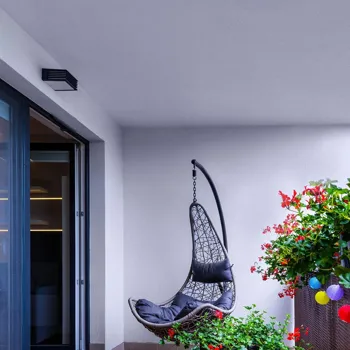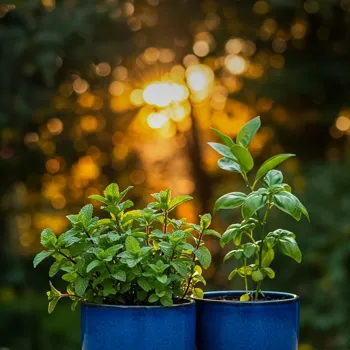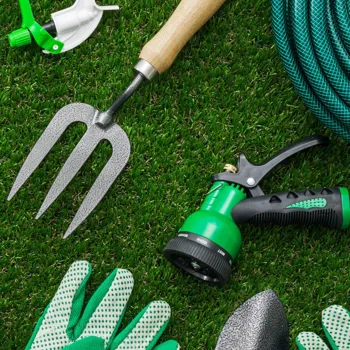Discover the joy of urban gardening! Tips for transforming your space into a green oasis. Dive in now!
Namaste, readers! City life can be hectic, filled with concrete jungles and the constant hustle-bustle.
But imagine this: a small patch of green right in your balcony, a mini-farm breathing life into your urban existence.

Yes, we're talking about urban gardening, a blooming trend that's not only eco-friendly but also incredibly therapeutic. Whether you're a seasoned gardener or just starting out, this guide will give you eight essential tips to grow your own slice of paradise. Let's dig in, shall we?
Assess Your Space & Sunlight
Before you get carried away with visions of lush tomato plants, take a good look at your available area. Balconies, rooftops, windowsills, that small patch in your backyard – every inch counts! Crucially, observe the amount of sunlight your space receives throughout the day.
Most vegetables require at least 6-8 hours of sunlight. For shady spots, consider leafy greens like spinach or herbs like mint. Remember, right plant, right place! Also, think about the weight your balcony can handle if you're planning for container gardening. Safety first, gardening later!
Choose the Right Containers
Gone are the days when gardening meant needing acres of land. Urban gardening thrives on containers! From terracotta pots to recycled plastic bottles, the options are endless. Consider the size of the plant you intend to grow. Tomatoes need bigger pots than, say, coriander.
Ensure your containers have drainage holes to prevent waterlogging, which can be a death sentence for your plants. Also, think about the material of your container; terracotta is breathable but can dry out quickly, while plastic retains moisture better. And don't forget aesthetics!
Choosing attractive containers can add to the overall appeal of your urban garden.
Soil is Soul
Don't underestimate the importance of good quality soil. Using garden soil directly might not be the best idea, as it can be heavy and compacted. Instead, opt for a potting mix designed specifically for containers. You can also create your own mix using equal parts of soil, compost, and cocopeat.
Compost is your friend! It adds nutrients, improves drainage, and helps retain moisture. Regular replenishment of nutrients is very important. Remember healthy soil means healthy plants!
Water Wisely
Proper watering is crucial for plant growth. Overwatering can be as damaging as underwatering. Check the soil moisture before watering; if the top inch feels dry, it's time to water. Water deeply, allowing the water to drain out of the drainage holes.
Avoid watering the leaves, especially in the evening, as it can lead to fungal diseases. Consider using a watering can with a rose head to distribute water evenly. And for the eco-conscious gardener, rainwater harvesting is a brilliant idea!
Select the Right Plants
While the desire to grow everything might be strong, it's best to start small and choose plants suited to your climate and space. Herbs like basil, mint, and coriander are easy to grow and require minimal space.

Tomatoes, chillies, and brinjals are popular choices for vegetable gardens, but they do need more sunlight and care. Leafy greens like spinach and lettuce are relatively low-maintenance and can tolerate some shade. Do some research and choose plants that will thrive in your specific environment.
You can even find tips from experienced urban gardeners in your city through online forums!
Love and Nurture (with Manure)
Just like us, plants need nourishment to thrive. Fertilize your plants regularly with organic fertilizers like compost tea or vermicompost. Avoid using chemical fertilizers, as they can harm the soil and the environment. Keep an eye out for pests and diseases.

Use organic pest control methods like neem oil or soapy water spray. Regular pruning and deadheading (removing wilted flowers) will encourage new growth and keep your plants healthy and happy.
Your garden is like your baby; give it love and attention, and it will reward you with a bountiful harvest.
Your urban garden is more than just a collection of plants; it's a space for relaxation, a connection to nature, and a source of fresh, healthy produce. Embrace the journey, experiment with different plants and techniques, and most importantly, have fun! Happy gardening!
Urban gardening is becoming increasingly popular due to its many benefits. For city dwellers, it provides a connection to nature, reduces stress, and improves mental well-being.

Growing your own food also ensures access to fresh, healthy, and organic produce, free from harmful pesticides and chemicals. Plus, it's a great way to reduce your carbon footprint by minimizing transportation costs and packaging waste. It could increase your property value.
Small touches go a long ways.
Starting an urban garden doesn't require a lot of space or money. You can begin with just a few pots on your balcony or windowsill. Choose plants that are easy to grow and suited to your climate.
With a little effort and patience, you can create a thriving urban garden that provides you with fresh produce and a sense of accomplishment. What is more the process of learning about the plants increases knowledge. This is very enriching for your life.
One of the biggest challenges of urban gardening is the limited space available. However, there are many creative ways to maximize space. Vertical gardening, using trellises or hanging baskets, is a great way to grow more plants in a small area.
Companion planting, where you plant different types of plants together that benefit each other, can also help maximize space and improve plant health. This allows you to be organized.
Dealing with pests and diseases is another common challenge in urban gardening.
However, there are many organic pest control methods that you can use to protect your plants. Neem oil, soapy water spray, and introducing beneficial insects like ladybugs are all effective and safe options.
Regularly inspecting your plants and removing any diseased leaves or stems can also help prevent the spread of diseases. A little bit of caution can help.
Watering and fertilizing your plants properly is essential for their growth. Water deeply and regularly, especially during hot weather.
Use organic fertilizers like compost tea or vermicompost to provide your plants with the nutrients they need. Avoid over-fertilizing, as this can damage your plants. Monitor the plants. Learn about the best ways to care for them. And enjoy the process.
Urban gardening is not just a hobby; it's a lifestyle. It's a way to connect with nature, reduce stress, and improve your health. It's also a way to contribute to a more sustainable future by growing your own food and reducing your carbon footprint. So, what are you waiting for?
Start your urban garden today! Make the world a better place.
AI Generated Content. Glance/InMobi shall have no liability for the content











